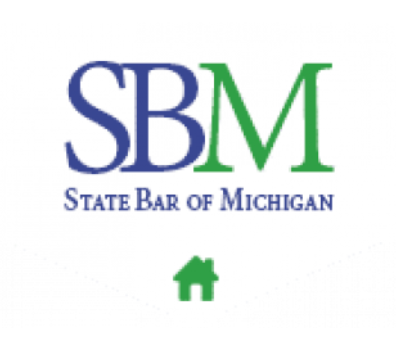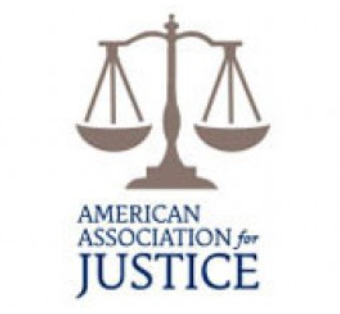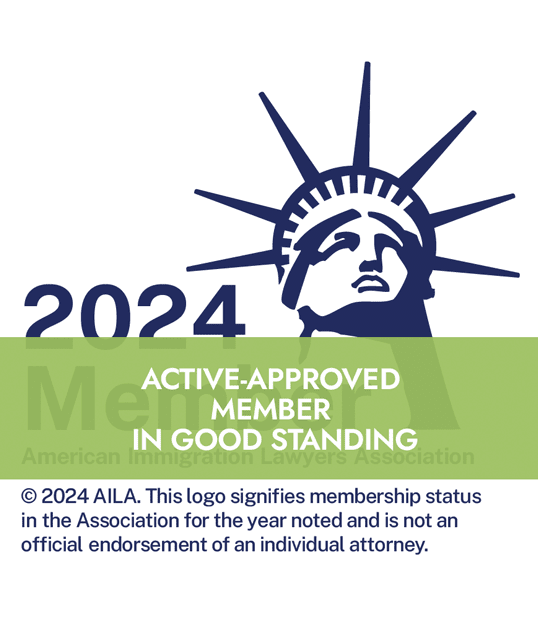Foreclosure & Surplus Fund - The Boora Law Group P.L.C. in Monroe, Michigan
In the challenging realm of Foreclosure & Surplus Funds, residents and property owners in Monroe, MI, and its neighboring areas can rely on The Boora Law Group P.L.C for adept guidance and representation. Foreclosure processes can be daunting, often leading to financial uncertainties and legal complexities. Our dedicated team is adept at navigating these intricacies, providing clarity on rights, potential outcomes, and viable strategies to mitigate the impact of foreclosure proceedings.
Moreover, when it comes to understanding and accessing Surplus Funds post-foreclosure, The Boora Law Group P.L.C offers invaluable expertise. These funds, often overlooked, can be crucial for property owners seeking to reclaim lost assets. With our deep knowledge of local regulations and a commitment to ensuring our clients' financial well-being, we stand ready to assist in securing and navigating the disbursement of surplus funds. Trust in our seasoned attorneys to guide you through the complexities of foreclosure and surplus fund matters, ensuring your rights are upheld and interests protected.
What Can A Property Owner Do to Recover Surplus Funds in Michigan After a Tax Foreclosure
Claiming surplus funds can be a daunting task if one does not understand the procedures, law and mechanism involved. But thankfully, the Michigan Supreme Court in Rafaeli, LLC v. Oakland County, 505 Mich 429; 952 NW2d 434 (2020) made a ruling that former owners of real estate that was the subject of a foreclosure by a local government for unpaid property taxes have a vested right in the surplus proceeds and that a potential claimant has such a right even after the property is transferred to the county treasurer. The Rafaeli, LLC v. Oakland County case stands for the view that the government’s claim of the surplus funds was an unconstitutional taking without just compensation and it resultantly violated Michigan law.
With the new ruling from the Michigan Supreme Court, beginning in the tax year of 2021 and going forward, individuals and homeowners can make claims to recover surplus proceeds from tax foreclosures. With that said, the Michigan Supreme Court has not yet indicated if the new rule applies retroactively to tax years 2020 or even earlier. Not long after the ruling by the Michigan Supreme Court, effective December 2020, the Michigan Legislature and the Governor, passed new laws that provide a process which allows for claims of surplus funds or money and that such a procedure must be followed by those wanting to recover such funds.
To be able to make a legal claim one has be a ‘CLAIMANT’ within the meaning of the state statute, namely, Michigan Complied Law § 211.78t(12)(a). Simply put, this means that the person making a legal claim must have legal interest in the property. The Act lays out the law regarding a person wishing to make a legal claim:
“211.78t Notice of intent to claim interest; form and contents; procedures; hearing; definitions.
Sec. 78t.
- A claimant may submit a notice of intention to claim an interest in any applicable remaining proceeds from the transfer or sale of foreclosed property under section 78m, subject to the following:
- For foreclosed property transferred or sold under section 78m after July 17, 2020, the notice of intention must be submitted pursuant to subsection (2).
- For foreclosed property transferred or sold under section 78m before July 18, 2020, both of the following:
- A claim may be made only if the Michigan supreme court orders that its decision in Rafaeli, LLC v Oakland County, docket no. 156849, applies retroactively.
- Subject to subparagraph (i), the notice of intention must be submitted pursuant to subsection (6).
- For foreclosed property transferred or sold under section 78m after July 17, 2020, by the July 1 immediately following the effective date of the foreclosure of the property, a claimant seeking remaining proceeds for the property must notify the foreclosing governmental unit using a form prescribed by the department of treasury. The department of treasury shall make the form available to the public on an internet website maintained by the department of treasury. A foreclosing governmental unit shall make the form available to the public on an internet website maintained by the foreclosing governmental unit if the foreclosing governmental unit maintains an internet website. Notice to a foreclosing governmental unit under this subsection must be by personal service acknowledged by the foreclosing governmental unit or by certified mail, return receipt requested. The notice must be notarized and include all of the following:
- The name of the claimant.
- The telephone number of the claimant.
- The address at which the claimant wants to receive service.
- The parcel identification number of the property, and, if available, the address of the property.
- An explanation of the claimant's interest in the property.
- A description of any other interest in the property immediately before the foreclosure under section 78k held by other persons and known by the claimant, including a lien or a mortgage.
- A sworn statement or affirmation by the claimant that the information included in the notice is accurate.
- Not later than the January 31 immediately succeeding the sale or transfer of the property under section 78m, the foreclosing governmental unit shall send by certified mail, return receipt requested, a notice in a form prescribed by the department of treasury to each claimant that notified the foreclosing governmental unit pursuant to subsection (2). The notice must include the following information:
- The parcel identification number of the property.
- The legal description of the property.
- The address for the property if an address is available for the property.
- The date on which the property was sold or transferred under section 78m or, if the property was not sold or transferred under section 78m, a statement indicating that the property was not sold or transferred.
- The minimum bid for the property as determined by the foreclosing governmental unit under section 78m.
- The amount for which the property was sold or transferred under section 78m.
- The amount of the sale cost recovery for the property, which must be equal to 5% of the amount under subdivision (f).
- The amount of any outstanding unpaid state, federal, or local tax collecting unit tax liens on the property immediately preceding the effective date of the foreclosure of the property under section 78k based on the records of the foreclosing governmental unit.
- The total amount of any remaining proceeds, or the amount of the shortfall in proceeds if the minimum bid under section 78m and other fees incurred by the foreclosing governmental unit in foreclosing and selling the property under section 78m exceed the amount received by the foreclosing governmental unit from a sale or transfer of the property under section 78m.
- The name and address provided by each claimant for the property pursuant to subsection (2).
- A statement that a claimant must file pursuant to subsection (4) a motion with the circuit court in the same proceeding in which the judgment of foreclosure of the property was effective under section 78k to claim any remaining proceeds payable to the claimant. The statement must include the case number assigned to the proceeding, the name of the judge assigned to the proceeding, and contact information for the clerk of the circuit court.
- For a claimant seeking remaining proceeds from the transfer or sale of a foreclosed property transferred or sold under section 78m after July 17, 2020, after receipt of a notice under subsection (3), the claimant may file a motion with the circuit court in the same proceeding in which the judgment of foreclosure of the property was effective under section 78k to claim any portion of the remaining proceeds that the claimant is entitled to under this section. A motion under this subsection must be filed during the period beginning on February 1 immediately succeeding the date on which the property was sold or transferred under section 78m and ending on the immediately succeeding May 15, and may not be filed after that May 15 if notice was provided under section 78i of the show cause hearing under section 78j and the foreclosure hearing under section 78k before the show cause hearing and the foreclosure hearing, notwithstanding section 78l. The motion must indicate both of the following:
- Whether the claimant or an entity in which the claimant held a direct or indirect interest purchased the property under section 78m.
- Whether the claimant does or does not hold a direct or indirect interest in the property at the time the motion is filed.
- At the end of the claim period described in subsection (4), the foreclosing governmental unit shall file with the circuit court proof of service of the notice required under subsection (3) and, for each property for which a claimant provided notice under subsection (2), a list of all of the following information:
- The parcel identification number of the property.
- The legal description of the property.
- The address for the property if an address is available for the property.
- The date on which the property was sold or transferred under section 78m or, if the property was not sold or transferred under section 78m, a statement indicating that the property was not sold or transferred.
- The minimum bid for the property as determined by the foreclosing governmental unit under section 78m.
- The amount for which the property was sold or transferred under section 78m.
- The amount of the sale commission for the property, which must be equal to 5% of the amount under subdivision (f).
- The amount of any outstanding unpaid state, federal, or local tax collecting unit tax liens on the property immediately preceding the effective date of the foreclosure of the property under section 78k based on the records of the county treasurer.
- The amount of any remaining proceeds, or the amount of the shortfall in proceeds if the minimum bid under section 78m and other fees incurred in foreclosing and selling the property exceed the amount received by the foreclosing governmental unit from a sale or transfer of the property under section 78m.
- The name and address provided by each claimant for the property pursuant to subsection (2).
- For a claimant seeking remaining proceeds from the transfer or sale of a foreclosed property transferred or sold under section 78m pursuant to this subsection, the claimant must notify the foreclosing governmental unit using the form prescribed by the department of treasury under subsection (2) in the manner prescribed under subsection (2) by the March 31 at least 180 days after any qualified order. By the following July 1, the foreclosing governmental unit shall provide each claimant seeking remaining proceeds for the property and notifying the foreclosing governmental unit under this subsection with a notice relating to the foreclosed property in the form and manner provided under subsection (3). To claim any applicable remaining proceeds to which the claimant is entitled, the claimant must file a motion with the circuit court in the same proceeding in which a judgement of foreclosure was effective under section 78k by the following October 1. The motion must be certified and include all of the following:
- The name of the claimant filing the motion.
- The telephone number of the claimant.
- The address at which the claimant wants to receive service.
- The parcel identification number of the property, and, if available, the address of the property.
- An explanation of the claimant's interest in the property.
- A description of any other interest in the property, including a lien or a mortgage, immediately before the foreclosure under section 78k held by any other person or entity and known by the claimant.
- A statement indicating that the claimant or an entity in which the claimant held a direct or indirect interest did or did not purchase the property under section 78m.
- A statement indicating that the claimant does or does not hold a direct or indirect interest in the property at the time the motion is filed.
- A sworn statement or affirmation by the claimant that the information included in the motion is accurate.
- At the end of the claim period described in subsection (4) or after receipt of a motion under subsection (6), the foreclosing governmental unit shall file with the circuit court proof of service of the notice required under subsection (3) and, for each property for which a claimant provided notice under subsection (2) or filed a motion under subsection (6), a list of all of the following information:
- The parcel identification number of the property.
- The legal description of the property.
- The address for the property if an address is available for the property.
- The date on which the property was sold or transferred under section 78m or, if the property was not sold or transferred under section 78m, a statement indicating that the property was not sold or transferred.
- The minimum bid for the property as determined by the foreclosing governmental unit under section 78m.
- The amount for which the property was sold or transferred under section 78m.
- The amount of the sale commission for the property, which must be equal to 5% of the amount under subsection (f).
- The amount of any remaining proceeds, or the amount of the shortfall in proceeds if the minimum bid under section 78m and other fees incurred in foreclosing and selling the property exceed the amount received by the foreclosing governmental unit from a sale or transfer of the property under section 78m.
- The amount of any outstanding unpaid state, federal, or local tax collecting unit tax liens on the property immediately preceding the effective date of the foreclosure of the property under section 78k based on the records of the county treasurer.
- The name and address provided by each claimant for the property pursuant to subsection (2) or (6).
- A motion by a claimant under this section must provide the specific basis for the claimant's asserted interest in some or all of the remaining proceeds, including the claimant's interest in the property immediately before its foreclosure under section 78k and documentation evidencing that interest. The claimant also shall affirm that the claimant did not transfer and was not otherwise divested of the claimant's interest in the property before the judgment of foreclosure was effective under section 78k. If a claimant had a lien or other security interest in the property at the time the judgment of foreclosure was effective under section 78k, the claimant shall indicate the amount owed to the claimant pursuant to the lien or security interest and the priority of the claimant's lien or security interest. The motion must be verified and include a sworn statement or affirmation by the claimant of its accuracy. A claimant filing a motion under this section must serve a copy of the motion on the foreclosing governmental unit.
- After the foreclosing governmental unit responds to a claimant's motion under this section, the court shall set a hearing date and time for each property for which 1 or more claimants filed a motion under this section and notify each claimant and the foreclosing governmental unit of the hearing date at least 21 days before the hearing date. At the hearing, the court shall determine the relative priority and value of the interest of each claimant in the foreclosed property immediately before the foreclosure was effective. The foreclosing governmental unit may appear at the hearing. The burden of proof of a claimant's interest in any remaining proceeds for a claimant is on the claimant. The court shall require payment to the foreclosing governmental unit of a sale commission equal to 5% of the amount for which the property was sold by the foreclosing governmental unit. The court shall allocate any remaining proceeds based upon its determination and order that the foreclosing governmental unit pay applicable remaining proceeds to 1 or more claimants consistent with its determination under this subsection. An order for the payment of remaining proceeds must not unjustly enrich a claimant at the expense of the public. If a claimant indicated in the motion that the claimant or an entity in which the claimant held a direct or indirect interest purchased the property under section 78m or if the claimant indicated in the motion that the claimant held a direct or indirect interest in the property at the time the motion was filed, the order must require remaining proceeds to be applied to any unpaid obligations payable to a tenant at the time the foreclosure was effective or any unpaid civil fines relating to the property owed at the time the foreclosure was effective for violation of an ordinance authorized by section 4l of the home rule city act, 1909 PA 279, MCL 117.4l, in the local tax collecting unit in which the property is located. The order must provide for the payment of any unpaid amounts not otherwise payable to another claimant owed by a claimant to satisfy a state, federal, or local tax collecting unit tax lien on the property immediately preceding the effective date of the foreclosure under section 78k if the lien had priority over the claimant's interest in the property. The order also must provide that any further claim by a claimant under this act relating to the foreclosed property is barred.
- The foreclosing governmental unit shall pay the amounts ordered by the court to the claimants and any other persons ordered by the court under subsection (9) within 21 days of the order pursuant to section 78m.
- This section is the exclusive mechanism for a claimant to claim and receive any applicable remaining proceeds under the laws of this state. A right to claim remaining proceeds under this section is not transferable except by testate or intestate succession.
- As used in this section:
- "Claimant" means a person with a legal interest in property immediately before the effectiveness of a judgment of foreclosure of the property under section 78k who seeks pursuant to this section recognition of its interest in any remaining proceeds associated with the property.
- "Remaining proceeds" means the amount equal to the difference between the amount paid to the foreclosing governmental unit for a property due to the sale or transfer of the property under section 78m and the sum of all of the following:
- The minimum bid under section 78m.
- All other fees and expenses incurred by the foreclosing governmental unit pursuant to section 78m in connection with the forfeiture, foreclosure, sale, maintenance, repair, and remediation of the property not included in the minimum bid.
- A sale commission payable to the foreclosing governmental unit equal to 5% of the amount paid to the foreclosing governmental unit for the property.”
CLAIMING PROCEEDS: With respect to claiming proceeds for property foreclosed or sold after July 17, 2020, a person is required to use a form prescribed by the Department of Treasury. The person claiming such proceeds must file a form with the foreclosing governmental unit, and for the most part that will be with the county treasurer. Once such Forms have been filed a person claiming such funds or proceeds will still have to file some legal documentation with the court in the county where the foreclosure occurred.
With respect to claiming proceeds of foreclosed property
before July 17, 2020, then a legal claim
CAN ONLY BE made if the Michigan Supreme Court orders that its decision in Rafaeli, LLC v. Oakland County, 505 Mich 429; 952 NW2d 434 (2020) applies what is termed as retroactively and if it does, then a potential claim can be made, if not, then a claim is not possible. One should note that the deadlines for applying for such funds are strict. At least now in the State of Michigan, the new statutes provide some recourse for taxpayers to recover excess proceeds from the local governmental unit. If you believe that you are entitled to such proceeds contact our office to see how we can assist you.








